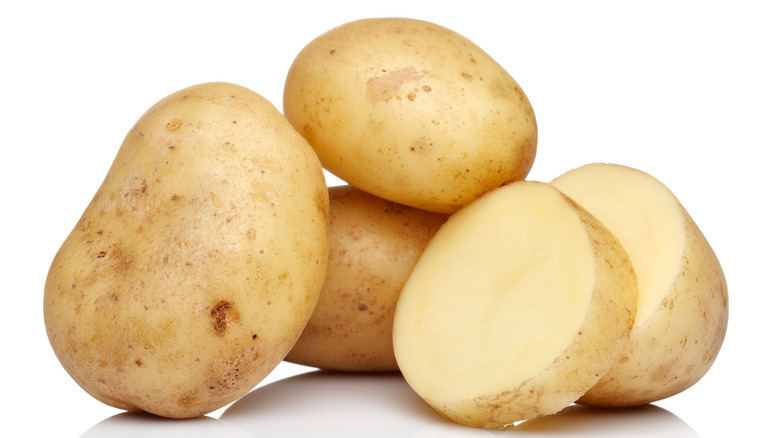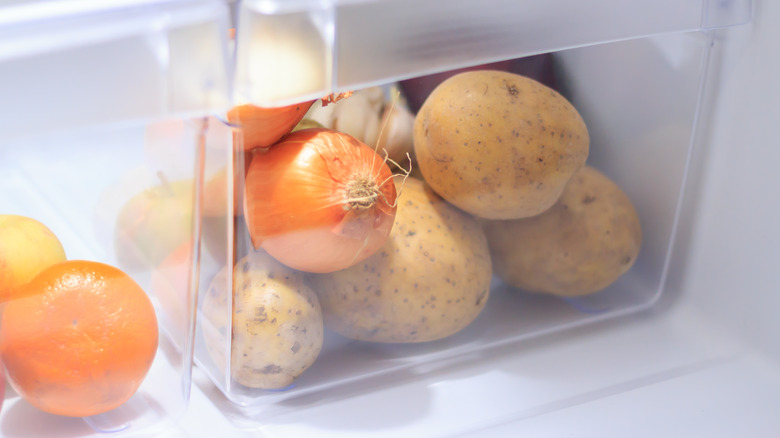What Really Happens When You Refrigerate Raw Potatoes
There seems to be no food that's quite as versatile as potatoes. From mashed potatoes and french fries to baked potatoes, potato salad, and even gnocchi, there are practically endless ways to prepare this delicious spud.
Because of this, it's even more important to make sure you store your potatoes carefully so they don't go bad before you have the time to make all of your favorite dishes. Nothing is more frustrating than having the perfect meal planned only to find that the key ingredient is no longer usable.
It can be tempting — and sometimes encouraged — to throw all fruits and veggies into your fridge's produce drawers. But when it comes to your potatoes, the cold air might actually be doing them more harm than good. So before you stash the whole sack away, be aware of the ways your raw potatoes may change when you put them in the fridge.
Your Fridge's Moisture Impacts Your Potatoes
According to Delish, when you put raw potatoes in the refrigerator, the fridge's added moisture makes the potatoes "gritty and sweet," which are not exactly things you want a potato to be. But it's not just the flavor and texture that the fridge can affect.
As your potatoes sit in the fridge, their starch is converted to sugar. Once fried, baked, or otherwise cooked at a high temperature, these sugars combine with amino acids and produce the chemical acrylamide. While the full details still aren't completely clear, acrylamide has been linked to cancer in different studies, per The Kitchn.
The Food Standards Agency, the UK's version of the FDA, shared that despite the effects of acrylamide being somewhat inconclusive, they still recommend reducing the amount of acrylamide in our diets. They specifically note that one way to do this is by not storing potatoes in your refrigerator. Instead, they suggest cool, dark spaces over 6°C (about 43° F) as the best option for potato storage.
Healthline also recommends storing potatoes in a paper bag or open bowl — not one with a lid. This allows free airflow and circulation and prevents the accumulation of moisture.

